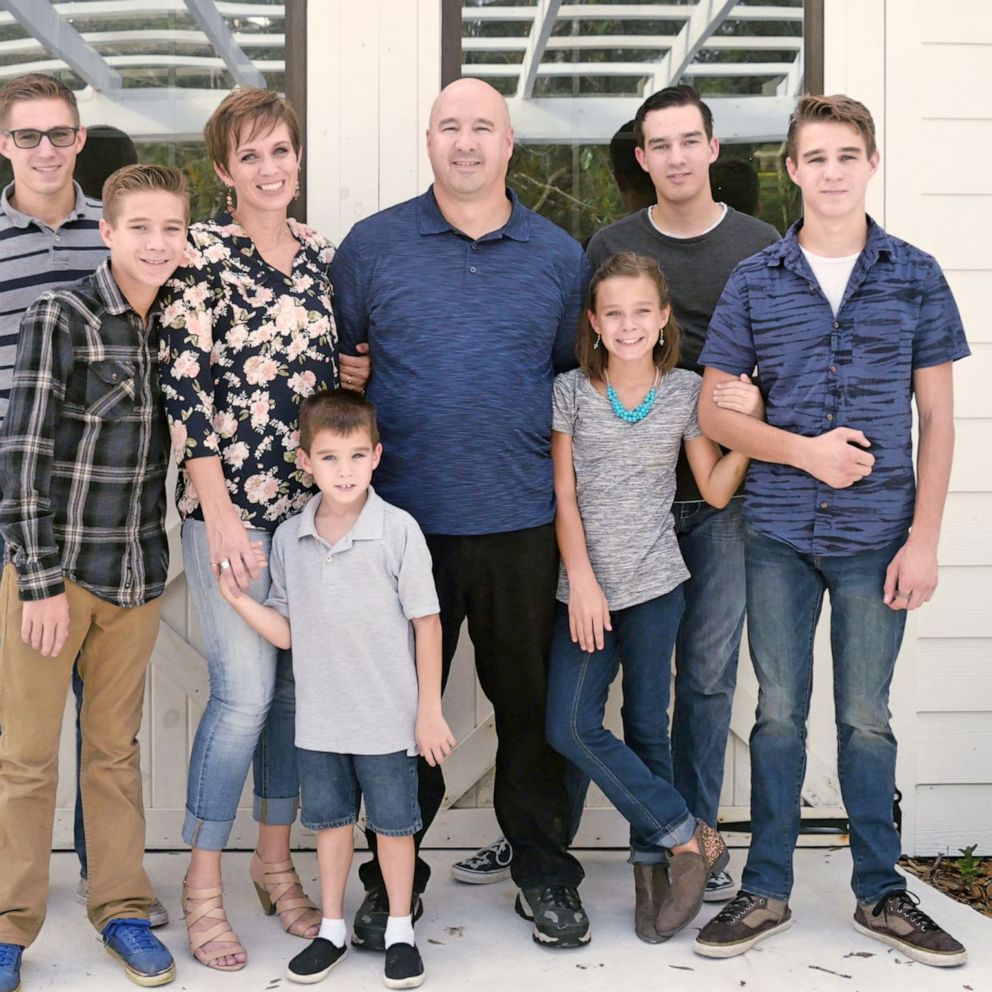Florida House of Representatives approves bill to ban social media for kids under 16
The bill now heads to the GOP-controlled state Senate for consideration.
Legislators in Florida are considering what could be the strictest regulation on social media and kids in the country.
The state's House of Representatives recently approved House Bill 1, which would prohibit children under the age of 16 from using most social media platforms, regardless of parental approval.
The social media platforms the bill would target include any site that tracks user activity, allows children to upload content or uses addictive features designed to cause compulsive use.
The House passed the bill on Jan. 24 by a vote of 106-13, with many Democrats joining the chamber's Republican majority in support of the bill. It now heads to the Republican-controlled Senate for consideration.
Most social media platforms currently have a minimum user age of 13.
The bill -- which is opposed by those who argue that it infringes on First Amendment and parental rights -- would allow the termination of social media accounts belonging to kids under 16, including the deletion of information for pre-existing accounts. It would also require that social media sites use "reasonable age verification methods" to verify users' ages.

The legislative action in Florida comes at a time when social media companies, as well as parents, legislators and medical providers, are trying to figure out how to approach social media and kids.
On Wednesday, the chief executives of the nation's top social media companies testified before Congress in a hearing intended to drum up support for federal legislation to safeguard children online.
Among those testifying before the Senate Judiciary Committee were Linda Yaccarino, the CEO of X, formerly known as Twitter; Shou Zi Chew, the CEO of TikTok; Evan Spiegel, co-founder and CEO of Snap, Snapchat's parent company; Mark Zuckerberg, founder and CEO of Meta; and Jason Citron, CEO of Discord.
During the hearing, Senate Judiciary Committee Chair Dick Durbin of Illinois called online child exploitation a "crisis in America" fueled by rapid changes in technology that give predators "powerful new tools" to target kids, arguing that social media had "contributed to the crisis."
Referencing the social media companies themselves, he added, "Their design choices, their failures to adequately invest in trust and safety and their constant pursuit of engagement and profit over basic safety have all put our kids and grandkids at risk," he said in his opening statement.
In his State of the City address earlier this month, New York City Mayor Eric Adams classified social media as a "public health hazard" and an "environmental toxin," saying young people must be protected from "harm" online.
Adams claimed in his Jan. 25th, address that TikTok, YouTube and Facebook are "fueling a mental health crisis by designing their platforms with addictive and dangerous features."
"We are the first major American city to take this step and call out the danger of social media like this," the mayor said. "Just as the surgeon general did with tobacco and guns, we are treating social media like other public health hazards and ensuring that tech companies take responsibility for their products."
Last week, Meta, the parent company of Facebook and Instagram, announced a series of new safety measures aimed at teens, including restricting private messages from strangers and instituting new parental controls.

In response to the Florida legislation, Meta argued that social media regulation should be overseen on on a federal basis, and that parental approval should be sufficient for minors' use of social media, according to The Associated Press.
"Many teens today leverage the internet and apps to responsibly gather information and learn about new opportunities, including part-time jobs, higher education, civic or church gatherings, and military service," Meta representative Caulder Harvill-Childs wrote to the Florida House Judiciary Committee, according to the AP. "By banning teens under 16, Florida risks putting its young people at a disadvantage versus teens elsewhere."
Last year, the American Psychological Association issued first-of-its-kind recommendations intended to help teenagers use social media safely, including setting time limits, encouraging family discussions about social media and parental monitoring.
The U.S. Surgeon General last year also issued an advisory warning of an urgent public health issue regarding social media usage and youth mental health.
In the advisory, released in May, Dr. Vivek H. Murthy called for more research to determine the extent of mental health impacts on young people, including the type of content generating the most harm, societal factors that could protect youth and ways in which social media can be beneficial.
"To date, the burden of protecting youth has fallen predominantly on children, adolescents and their families," Murthy wrote. "The entire burden of mitigating the risk of harm of social media cannot be placed on the shoulders of children and parents."
Murthy called on social media companies to prioritize safety and privacy in their product designs and ensure minimum age requirements are enforced. He said he believes 13 is "too early" for kids to be on social media, describing the age as a "time when kids are developing their identity, their sense of self."
The advisory also outlined how policymakers can enact change in three ways: creating policies limiting access to potentially harmful content, developing curricula about digital and media literacy in schools, and increasing funding for related research.






